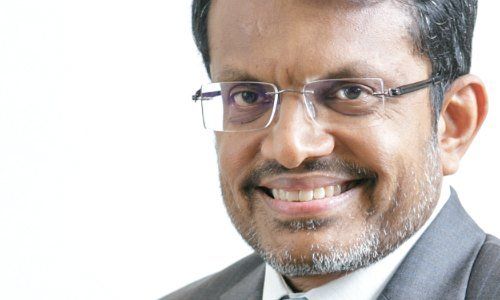The fintech sector has fueled nearly one-quarter of new jobs in Singapore's financial sector in the last two years. The life insurance industry saw double-digit growth in the same period.
Singapore saw a net increase of 7,800 jobs in financial services and fintech over 2016 and 2017, according to a speech by Ravi Menon, head of the Monetary Authority of Singapore, or MAS.
«Job growth was mainly driven by the insurance and fund management industries, and to a lesser extent by the banking industry. Fintech alone is estimated to have contributed close to 2,000 of the net jobs created during these two years,» said Menon at a media briefing on Wednesday.
Singapore's growth in financial services rebounded strongly to 4.9 percent last year, versus 1.8 percent in 2016.
Exceeding Targets
Under a four-year plan to redraw the finance industry, the government hopes to create close to 3,000 net jobs in financial services and 1,000 net jobs in fintech every year.
The net job increases in 2016 and 2017 meant that the government is close to its target of 8,000 under the roadmap. This year, MAS projects that job growth in financial services will exceed its own target.
Information technology, or IT, jobs underpinned most of the hiring demand across financial services, particularly software development, cybersecurity, data analytics, artificial intelligence and business process engineering, MAS noted.
Strong Growth in Life Insurance
Singapore's life insurance industry grew by 16 percent per annum over the last two years, driven by Asian consumers’ search for more savings and investment products. This is despite much slower growth– just 2 percent per annum —for net non-life premiums, due to excess capacity in this area.
In its bid to maintain Singapore as an attractive reinsurance hub in Asia, MAS is pushing into alternative risk solutions such as risk pools and insurance-linked securities.
Last year, global reinsurers such as Swiss Re and Munich Re set up their regional headquarters in Singapore.
Double-Digit Growth in Assets
Singapore's total assets under management, or AuM, rose by an average of 12.7 percent over the two years, with growth seen across traditional and alternative assets. This was supported by higher valuations and continued fund flows into Asian markets.
Alternative AuM grew by an average 16.9 percent over the same period, led by venture capital and private equity. The majority of private equity managers focused on growth and buyout strategies.
By comparison, Singapore's private banking AuM expanded more slowly, averaging 6.6 percent during this period. An increased number of wealthy families have set up family offices in Singapore to access investment opportunities in Asia.




























